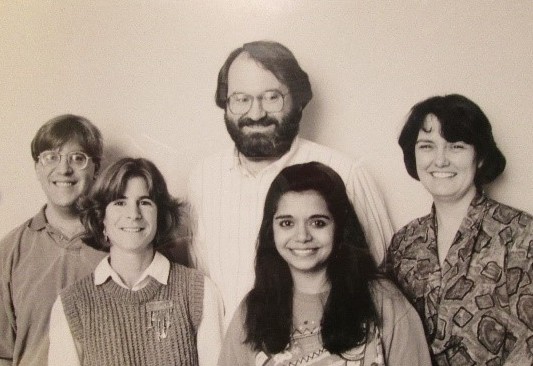Celebrating Dr. Nina Kraus
Dr. Nina Kraus is being celebrated in this special issue of CanadianAudiologist. To be fair, Nina’s work is being feted, but it is almost impossible to separate Nina from her work. Nina’s passion is boundless, and it would be naïve to think that we can separate Nina from her work, or for that matter, from the Brainvolts website or anything else in her life.
This CanadianAudiologist has many contributions from her previous students who have gone on and themselves have made significant contributions to the literature. But this issue also has an interview about Brainvolts, and even in that interview, it was impossible to separate Nina from her work. Indeed an amazing person, which the Canadian Academy of Audiology is proud to be able to recognize.
Nina Kraus absolutely insists on enjoying life. Her passion for life is evident in her work, relationships, and personal pursuits. She enjoys many genres of music ranging from Italian opera to rock and roll. In addition, she is a disciplined proponent of physical exercise, biking to work every day in all weather conditions (in frigid, snowy Chicago winters), and honing her boxing skills in the gym (check out the biceps). These interests have carried over to investigating the impact of life experiences, including music and sports, on auditory function. From her first days in her lab, Nina has also insisted that her students enjoy life or life in the lab. Lab dinners and outings encourage the sense of teamwork and collegiality that have led to > 400 publications on a wide range of topics, including music, concussion, reading, speech in noise, aging, bilingualism, neuroeducation, autism, and technologies.
We have gathered a group of articles written by Nina’s colleagues and former post-docs and students. These articles reflect her vibrant nature and the impact she has had on understanding the mechanisms that underlie clinical impairments and expertise in auditory function. Most importantly, they speak to deep connections with her students and colleagues that have continued long past time spent in her lab. We would like to thank Karen Banai, Erica Skoe, Kelly Tremblay, Gabriella Musacchia, Jane Hornickel, Anu Sharma, Trent Nicol, Ann Bradlow, Bharath Chandrasekaran, and Dan Abrams in no particular order to this special issue featuring Nina’s work.





